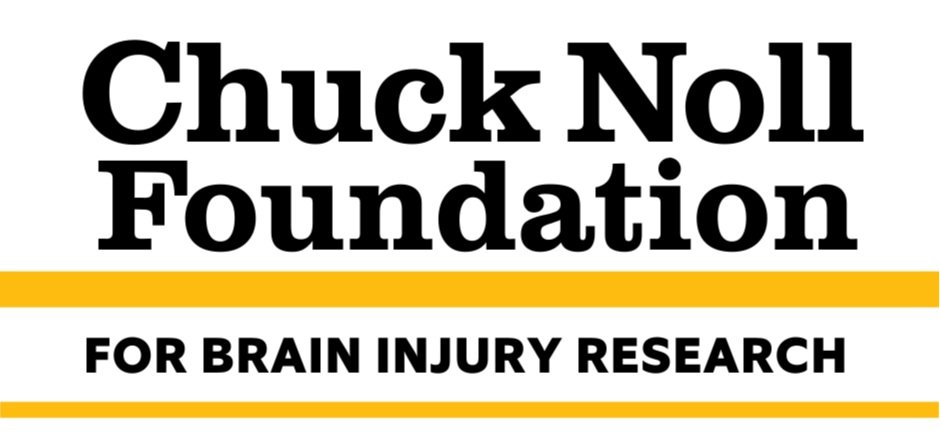The Chuck Noll Foundation Makes Investment in Exciting New Research
Awards Grants Totaling $500,000 in Funding
The Chuck Noll Foundation for Brain Injury Research announced its newest set of grants geared toward improving the diagnosis, treatment and prevention of brain injuries resulting from sports related activities. Four new grants out of twenty six proposals were awarded in both clinical and basic science for a total of $500,000.
“We are proud to fund so many early stage, innovative research projects that will lead to early diagnosis and treatment of brain injuries in sports,” said Board Chair, Arthur J. Rooney, II. “As always, we appreciate the many researchers who submitted proposals and are extremely grateful to our National Science Advisory Committee for their work in reviewing and recommending these projects.”
In 2023, the Chuck Noll Foundation marked its fifth annual grant cycle by receiving the largest number of proposals from across the country and internationally. The Foundation’s National Science Advisory Committee reviewed all submitted proposals and recommended to the board four proposals to be considered for funding. With this latest grant cycle, the Foundation has now awarded $3.2 Million in grants across twenty four projects, which has leveraged over $15 Million in additional research funding.
“It’s incredible the number of really good research projects occurring around traumatic brain injuries here in Pittsburgh and across the globe,” said Dr. Joseph C. Maroon, Chair of the National Science Advisory Committee. “We are seeing research proposals on unconventional therapy, biomarkers, to areas of the brain that have been ignored or unable to reach with minimal invasive non-surgical techniques.”
The four grants approved include:
Drs. Pulkit Grover, Carnegie Mellon University, and Boyle Cheng, Allegheny Health Network
DeepVibe: A maximally minimally-invasive non-surgical technique for steerable deep brain stimulation for TBI treatment
$125,000
Following brain injuries, it is common for patients to experience impairments of executive functions. While neurostimulation shows possibilities, sites in the brain are often inaccessible to current non-invasive stimulation techniques and technologies to reach. Researchers are seeking to develop a non-invasive, or minimally invasive technology, DeepVibe, to deliver neurostimulation treatment more effectively and make it more accessible to TBI patients.
Drs. Shaun Carlson and Yijen Wu, University of Pittsburgh
MRI as an imaging biomarker for recovery of brain bioenergetics following repetitive mild traumatic brain injury
$125,000
At the neuron level, mild TBI may create bioenergetic changes that go undetected by current assessment techniques. This project will complete the first examinations of 4D Oxy-wavelet magnetic resonance imagings (MRI) as a non-invasive imaging biomarker to predict recovery of brain bioenergetics after repetitive mild traumatic brain injury.
Dr. Julia Kofler, University of Pittsburgh and the National Sports Brain Bank
Evaluation of four different web or mobile phone based digital neuropsychological testing platforms for tracking of longitudinal cognitive trajectory in former contact sport participants
$125,000
Following the successful launch of the National Sports Brain Bank at the University of Pittsburgh, which has enlisted 50 participants including former Pittsburgh Steelers Jerome Bettis and Merril Hoge, this project will allow researchers to determine the best practices for the tracking of participants’ longitudinal trajectory through mobile- and web-based platforms.
Drs. Patrick Kochanek and Ruchira Jha, University of Pittsburgh and Barrow Neurological Institute
Cerebellar Neuro Inflammation after mild repetitive traumatic brain injury: the forgotten therapeutic target
$125,000
This research is intended to explore other areas of the brain that are affected by mild traumatic brain injuries for alternative treatment purposes.
Dr. Pulkit Grover, who leads ‘the For All Lab’ at Carnegie Mellon University and is one of the Foundation’s grantees said, ”We are thrilled to receive this early-stage funding from the Chuck Noll Foundation. It will enable a vital collaboration with Dr. Boyle Cheng and TBI clinicians at AHN, with the shared goal of pioneering innovative and accessible new treatments for traumatic brain injuries.”
Another recipient of funds, Dr. Patrick Kochanek, Director of the Safar Center for Resuscitation Research at the University of Pittsburgh said, “The funding from the Foundation is helping us discover new ways to treat people with traumatic brain injuries. Our research is at the forefront of scientific innovation.”
ABOUT THE CHUCK NOLL FOUNDATION FOR BRAIN INJURY RESEARCH
The Chuck Noll Foundation for Brain Injury Research was established in December 2016 through an initial grant from the Pittsburgh Steelers. Chuck Noll, for whom the Foundation is named, enjoyed a 23-year coaching career with the Steelers that culminated with his induction into the Pro Football Hall of Fame in 1993. Noll’s commitment to the well-being of his players ultimately led to the development of the ImPACT test (Immediate Post-Concussion Assessment and Cognitive Testing) used by NFL team doctors since 2007, and now internationally used to help monitor concussions for athletes at all levels. More information on the Chuck Noll Foundation for Brain Injury Research can be found at: www.chucknollfoundation.org
Contact: Anna Havrilla, ahavrilla@chucknollfoundation.org
